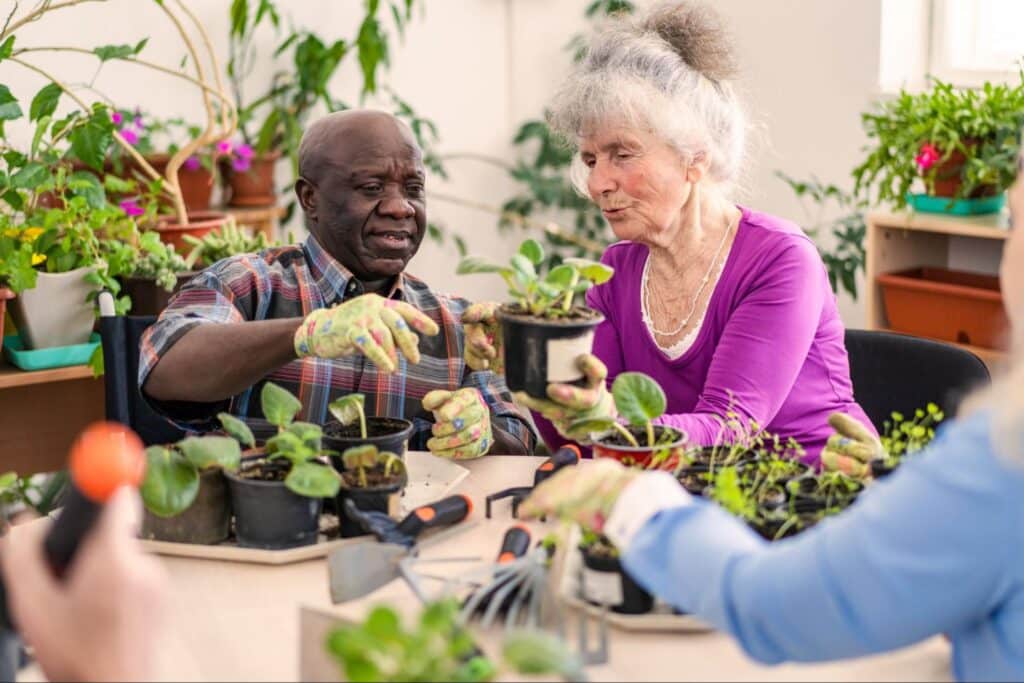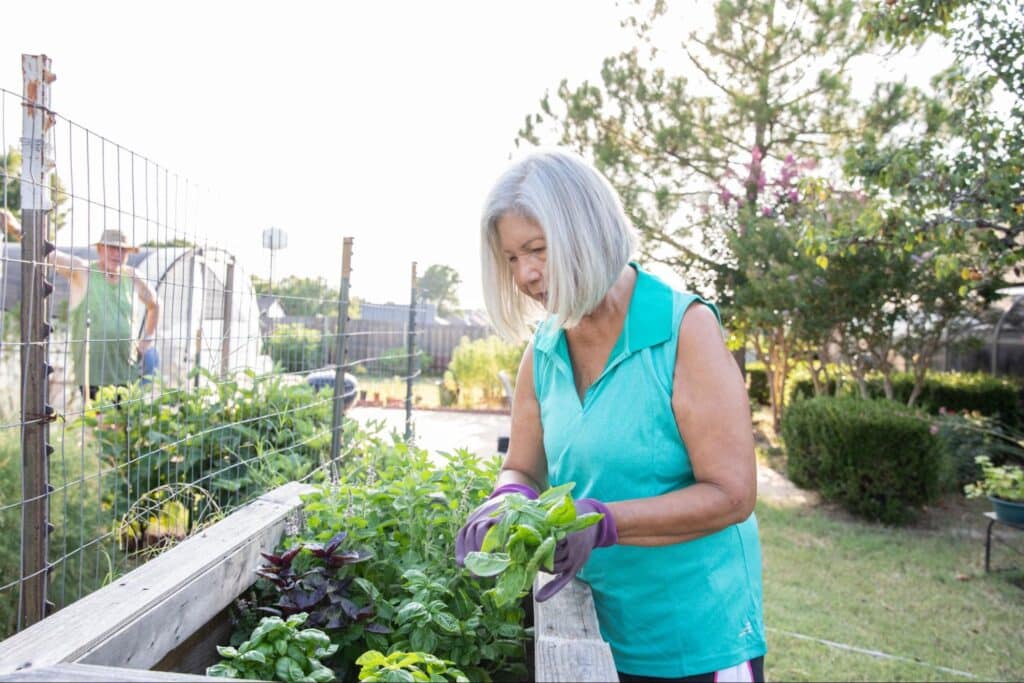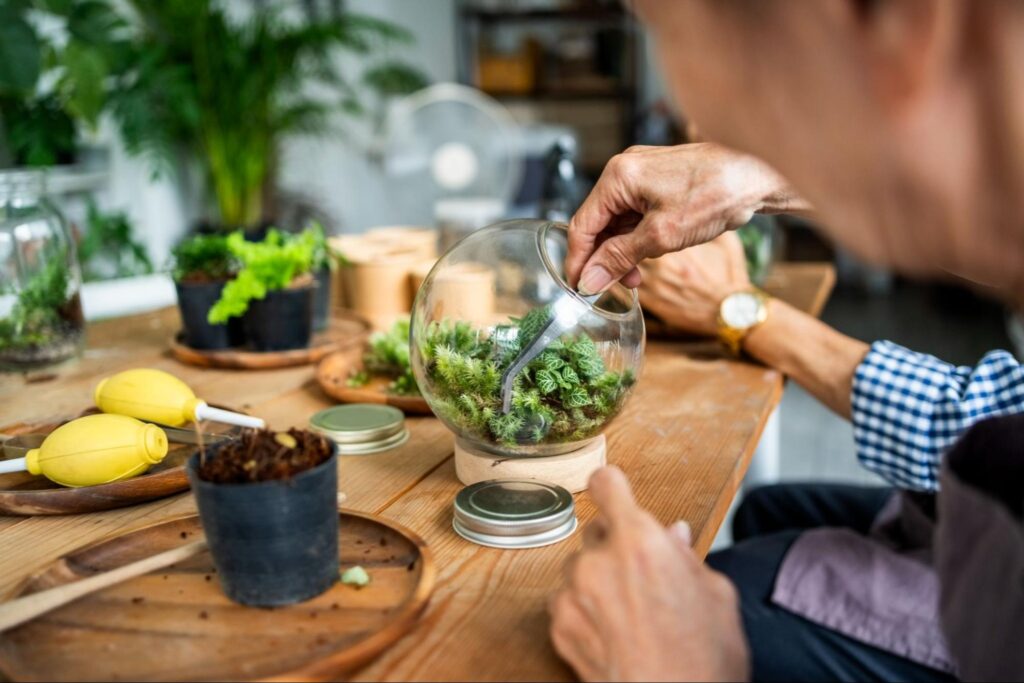
Gardening is more than just a leisure activity; for seniors, it can be a deeply rewarding and enriching experience. Beyond the obvious aesthetic benefits of a lush, well-maintained garden, tending to plants provides numerous health, social, and emotional advantages. With aging comes a need for activities that promote mobility, a sense of purpose, and community connections, and gardening fulfills this need remarkably well. This essay explores the benefits of gardening for seniors, shares valuable tips for safe and enjoyable gardening, and highlights the role of gardening clubs in fostering a sense of belonging.
The Benefits of Gardening for Seniors
Engaging with nature through gardening provides a multitude of physical, mental, and emotional benefits that uniquely suit an aging population.
Physical Benefits
Gardening encourages moderate exercise, which is crucial for maintaining flexibility, strength, and mobility as we age. Activities like planting, weeding, watering, and pruning provide a workout for various muscle groups and help improve motor skills. For seniors who might not be able to participate in high-intensity workouts, gardening serves as a low-impact alternative that keeps the body active and energized. Additionally, spending time outdoors can increase Vitamin D levels, which contribute to bone health and immune function.
Studies have also shown that gardening can lower blood pressure and reduce the risk of chronic illnesses like heart disease. Furthermore, the repetitive actions and fine motor tasks involved in gardening help improve coordination, making it particularly beneficial for individuals managing arthritis or other joint issues.
Mental and Emotional Well-being
Gardening comes with therapeutic benefits for mental health. The act of nurturing and watching plants grow instills a sense of accomplishment and purpose, which is particularly significant for retirees who may struggle with a loss of daily responsibilities. Gardening has also been linked to reduced symptoms of depression and anxiety. The serene, repetitive nature of gardening activities fosters mindfulness, helping seniors stay present and at ease.
One of the most underrated mental benefits of gardening is its ability to exercise the brain. Planning a garden layout, understanding the needs of different plants, and solving problems like pests and drought all stimulate cognitive functions, which is crucial for maintaining mental sharpness.
Social Connections
For many seniors, isolation is a major concern, especially after retirement. Gardening can provide opportunities to connect with neighbors or participate in local gardening initiatives. Gardening clubs, which will be explored in detail later, serve as excellent platforms for meeting like-minded individuals, sharing ideas, and forming lasting friendships.
Practical Gardening Tips for Seniors
While gardening is highly beneficial, it is essential to approach it safely and enjoyably, particularly for seniors who may experience physical limitations or health considerations. Below are some practical tips:
1. Use Raised Garden Beds

Raised garden beds bring plants closer to eye level, minimizing the need to bend or kneel, which can strain the back and knees. These beds are especially helpful for seniors with arthritis or limited mobility.
2. Invest in Ergonomic Tools
Tools with ergonomic handles offer better grip and minimize strain on the hands and wrists. Lightweight tools can also reduce the physical effort required for tasks like digging and pruning.
3. Take Frequent Breaks
Gardening can be engrossing, and it’s easy to lose track of time. Seniors should take breaks every 20-30 minutes to avoid overexertion and stay hydrated while working outdoors.
4. Protect Against the Sun
Extended exposure to sunlight increases the risk of dehydration and sunburn. Wearing a wide-brimmed hat, sunglasses, and sunscreen can help protect the skin, while gardening early in the morning or late in the afternoon avoids the harshest sun hours.
5. Focus on Low-maintenance Plants
Consider planting perennial flowers or hardy shrubs that require less seasonal maintenance. Native plants suited to local climates are another fantastic option, as they tend to thrive without too much attention.
6. Experiment with Container Gardening
Container gardening allows seniors to grow plants such as herbs, vegetables, or flowers in pots that can be placed on patios, balconies, or window sills. This method is less physically demanding and easier to manage.
7. Avoid Heavy Lifting
Using a wheelbarrow or gardening cart can reduce the need to carry heavy loads. Soil, water cans, and pots can be surprisingly heavy, so it’s important to use proper supports to prevent injuries.
Bringing Gardening to Loved Ones with Mobility Issues
For seniors with mobility issues, traditional gardening may present challenges, but this doesn’t mean they have to miss out on the joys and benefits of nurturing plants. There are several ways to adapt gardening activities to fit their needs, ensuring they can still partake in this rewarding hobby.
Terrariums

One popular and accessible gardening activity is creating terrariums. These miniature gardens can be crafted indoors, making them ideal for seniors who may have difficulty accessing outdoor spaces. Terrariums require minimal maintenance and can be customized with a variety of plants, such as succulents, ferns and mosses. The process of assembling a terrarium is both creative and therapeutic, offering a sense of accomplishment and engagement.
Convenient terrarium kits are readily available online and come with everything needed for a successful gardening experience, including containers, soil, plants and decorative elements. These kits simplify the process and make it easy for family members or caregivers to assist seniors in setting up their terrariums. The activity can be done at a kitchen table or any comfortable indoor space, making it highly adaptable to individual needs and preferences.
Tabletop Gardening
In addition to terrariums, tabletop gardening is another excellent option. Small pots or planters can be used to grow herbs, flowers, or even small vegetables. These can be placed on a table or windowsill, allowing easy access for seniors with limited mobility. Tabletop gardening provides the same sensory and cognitive benefits as traditional gardening, without the physical strain.
By bringing gardening indoors and adapting it to the needs of seniors with mobility issues, loved ones can still enjoy the numerous benefits of this enriching activity. Whether it’s through creating a terrarium or cultivating a tabletop garden, the therapeutic effects and sense of accomplishment remain intact.
Gardening offers a wealth of benefits for seniors, from physical exercise and mental stimulation to emotional well-being and social connections. By incorporating practical tips and adapting activities like terrarium creation and tabletop gardening, even those with mobility issues can enjoy this fulfilling hobby. At Renaissance Villages, we encourage our senior residents to embrace gardening in all its forms, fostering a healthier, happier, and more connected community.

